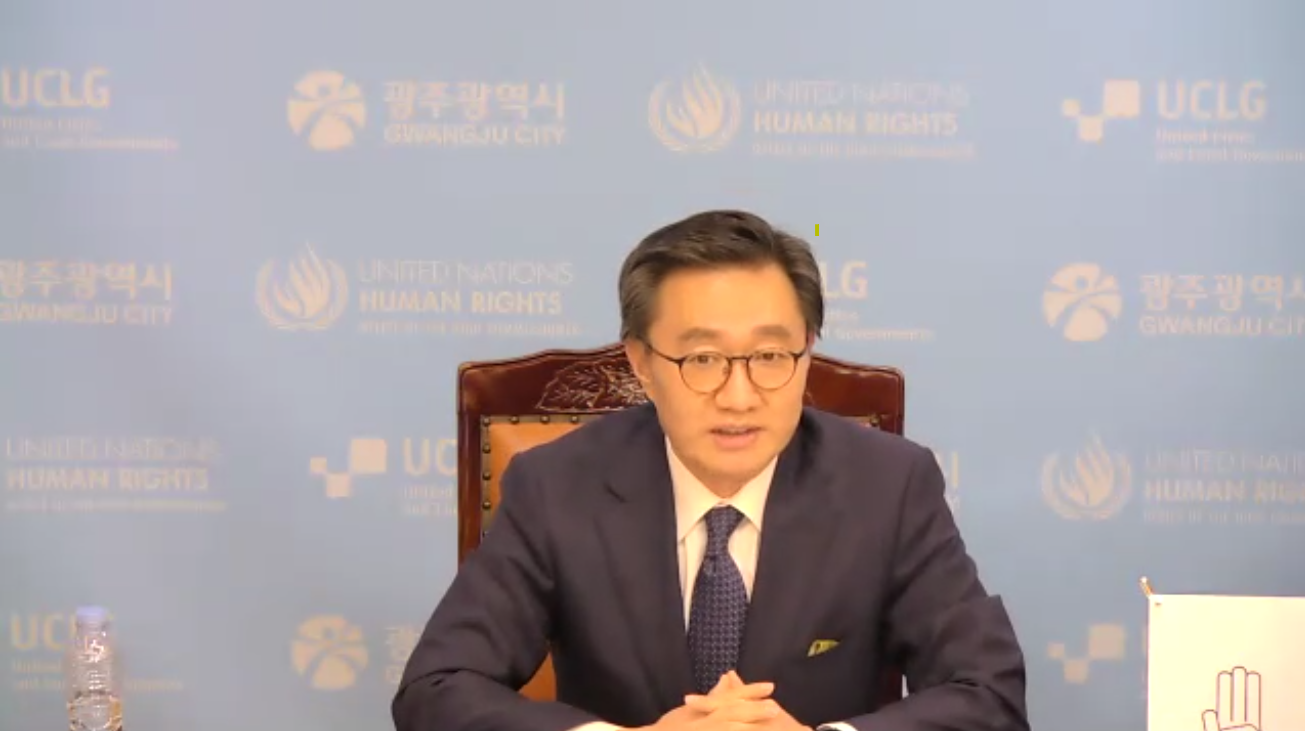Yoon Yeocheol: A Diplomat’s Thoughts On His Life, Gwangju’s Future, and South Korea’s Global Mission
Interviewed by the World Human Rights Cities Forum Secretariat
Yoon Yeocheol is the Ambassador for International Relations at Gwangju Metropolitan City and has been involved in international relations representing Korea in many capacities. At the World Human Rights Cities Forum, Ambassador Yoon will lead the session on Myanmar. The Gwangju News thanks him and the World Human Rights Cities Forum (WHRCF) Secretariat for conducting this interview for the Gwangju News.
WHRCF: Thank you for taking the time to accept this interview request. For starters, would you mind telling us a little bit about yourself, including your background?
Ambassador Yoon: I am a Korean diplomat with 37 years of experience. I studied at Seoul National University and its Graduate School for Public Administration, and at Dartmouth College and The Fletcher School of Law and Diplomacy in the United States. I have been posted four times in the United States: the Korean Embassy in Washington, D.C., the Office of the President of the UN General Assembly, the Korean Mission to the UN, and the Office of the UN Secretary-General in the UN Secretariat, all three in New York. I have also served twice in Africa, in Cote d’Ivoire and Egypt. I served as Director for Protocol and Director for North American Affairs, Deputy Minister for Protocol, and Protocol Secretary to the President. After my latest work as the Korean Ambassador to Egypt, I arrived in Gwangju in August 2020 as international relations ambassador.
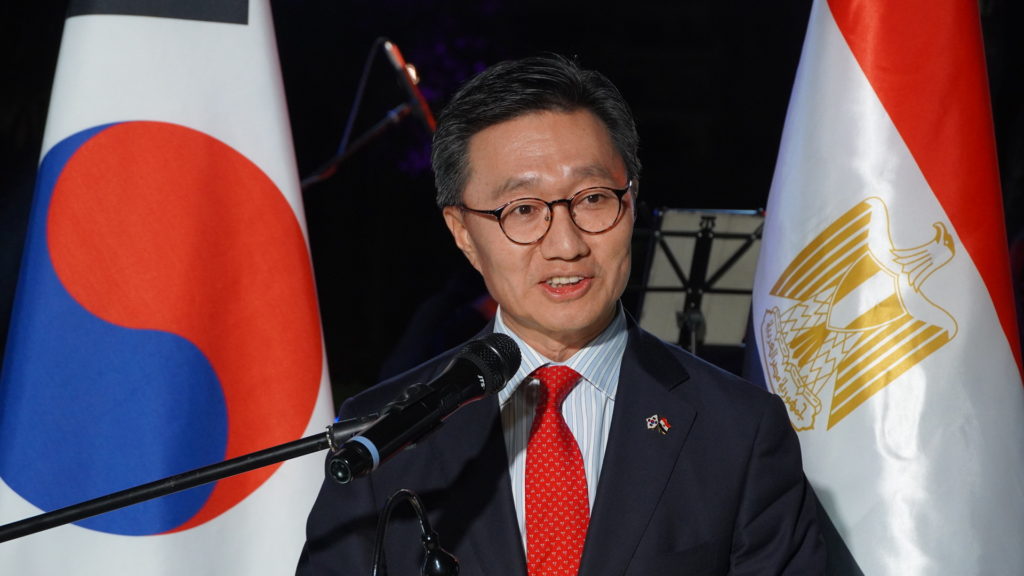
WHRCF: How exactly did you become involved in the field of diplomacy? Was there a particular moment or person who inspired you to follow this line of work?
Ambassador Yoon: When I was a child, I dreamed of becoming an astrophysicist. I was fascinated by the beauty and mystery of the universe. But when I learned about the influence external forces have had on Korea, I became interested in foreign culture and history. That is what led me to the profession of diplomacy. There was also an English teacher in my high school who said that, with my proficiency in English, I would make an excellent diplomat. My teacher’s encouragement helped to settle my choice between science and the humanities. After passing the Foreign Service Exam in early 1984, I finally joined the corps of Korean diplomats and began my life’s work.
WHRCF: Could you please share the most memorable moments you experienced as a special assistant to the UN Secretary-General and ambassador to the Arab Republic of Egypt?
Ambassador Yoon: As special assistant to the Secretary-General, I was in charge of his daily schedule and foreign trips. In fact, the annual distance covered by all his trips was enough to fly around the world twice.
In 2011, he visited South America. Due to a volcanic eruption in the Andes and the ashes it produced, our flight from Bogota, Colombia, to Buenos Aires, Argentina, was diverted to another city called Cordoba, 800 kilometers south of our original destination. The host country provided some tour buses for the delegation, which we had to ride for ten hours. That particular day was Secretary-General Ban Ki-moon’s birthday. At a cafeteria along the highway, we stuck a candle in a cupcake and sang happy birthday to him. After Argentina, we had to use a ferry boat to cross the La Plata river to move to Uruguay because the ash was still thick in the air. Then we flew to Brazil, where the Secretary-General was informed of the unanimous decision by the UN Security Council and General Assembly to re-elect him for another term. He had been laboring without remembering his own birthday or thinking about the ongoing process of his re-election.
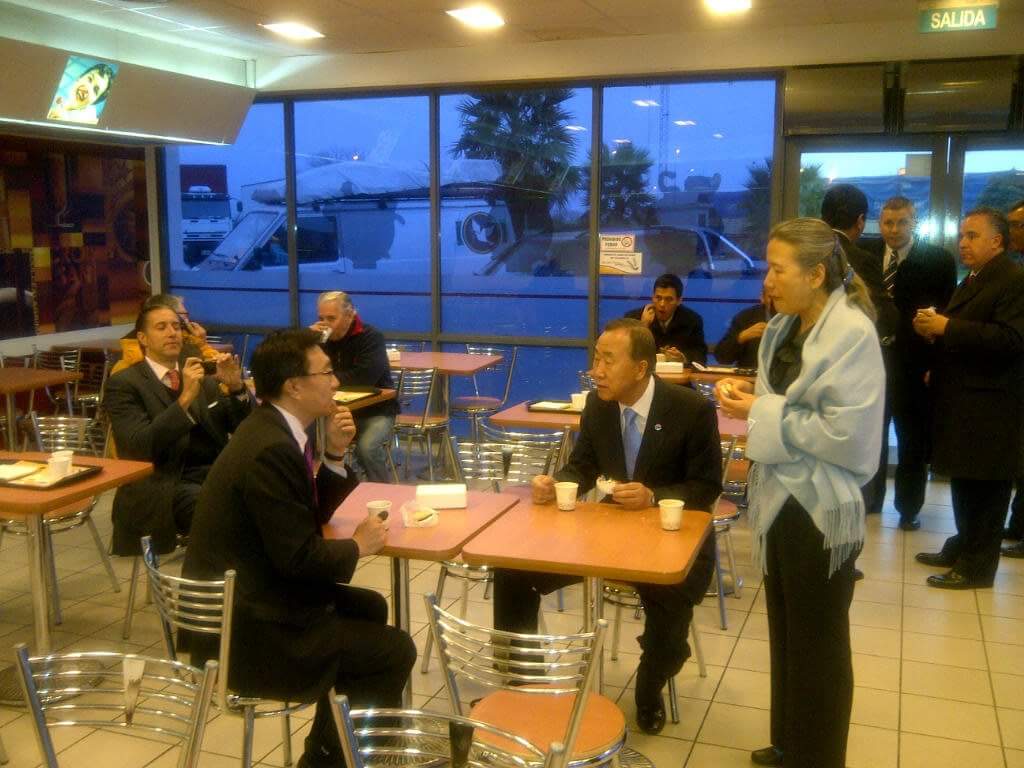
There is an American comedy movie called Planes, Trains, and Automobiles about an unpredictable journey, and our trip was just like that – except that our crazy expedition covered air, land and water, so we called it “Planes, Buses, and a Ferry Boat.”
Last year, the whole world was caught off guard with the sudden outbreak of COVID-19. Egypt was no exception. Many Korean tourists, volunteers, and residents needed to quickly leave the country. Fortunately, some European countries were flying chartered flights to evacuate their nationals. They also allowed other nations’ residents to take available seats and share the cost. As I was in close contact with ambassadors of those countries, information sharing and necessary coordination for Korean passengers were quite timely and effective. We were able to evacuate 124 Koreans on the flights arranged by the British and French governments.
Later, the Korean community, in cooperation with the embassy, arranged our own chartered flight and brought 133 people home. Those Koreans still remaining in Egypt continued the minimum management of their properties, relieved that their loved ones were already back in Korea. That was challenging work, but with the help of the Korean community, it was really well orchestrated.
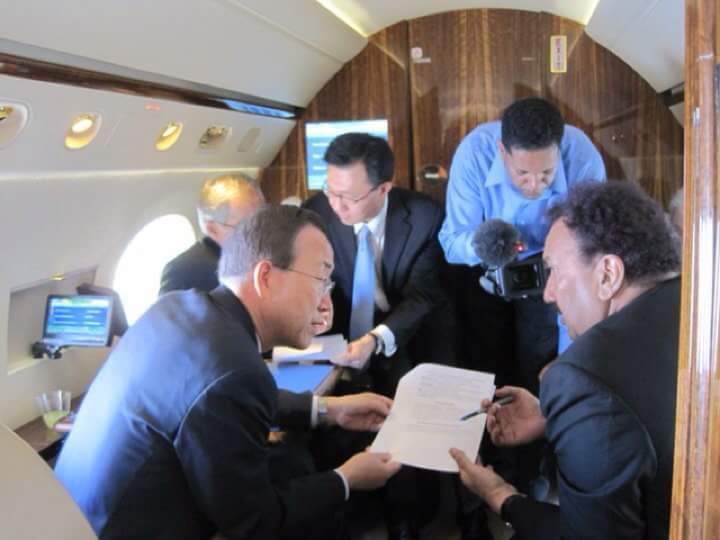
WHRCF: Based on your experience, what are the most important traits for a diplomat to have?
Ambassador Yoon: I regard myself as a lazy person. But when I have responsibilities to fulfill, I try to be prepared. One trait I would look for in a potential candidate is curiosity about culture, history, and other aspects of foreign countries. A diplomat should also be prepared with the knowledge of their own country. Curiosity prepares you to ask the right questions as well as further your own knowledge. Preparation enables us to answer others’ questions about ourselves.
In the process of intercultural and international communication, foreign language skills are critical. The international language at the moment is English, but knowledge of other languages is useful. It goes without saying that the greater command one has of English, the better.
WHRCF: You have been serving as Ambassador for International Relations on behalf of Gwangju Metropolitan City for about a year. What does the City of Gwangju have to offer regarding international collaboration? What advice would you like to give to the city?
Ambassador Yoon: The City of Gwangju is, without a doubt, the hub of human rights in Asia due to the heroic 1980 Gwangju Democratization Movement. Its influence and prestige are also due to the hard work of the Gwangju International Center in organizing the World Human Rights Cities Forum for the last ten years. Gwangju is also the art capital of Korea with high appreciation of art by the people of Gwangju and events like the Gwangju Biennale. I am also struck by this city’s ambition to become the hub of artificial intelligence in this corner of the world. Overall, I see Gwangju’s people and government as future-oriented and proactive on many fronts.
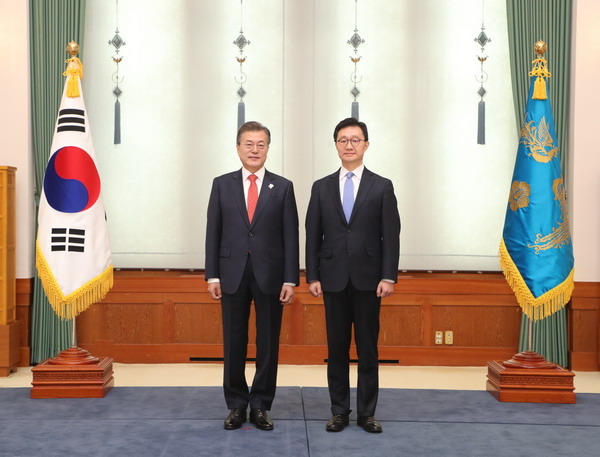
At the same time, I wish to emphasize that our value is not entirely determined by what we can show the world. Our interest in other cultures and our understanding of different nations also matters. We need to widen our perspective and see where the world is going in order to understand how Korea can help other people. That will create a truly global mindset for the people of Gwangju.
WHRCF: Following the last consultation on the Myanmar crisis between Gwangju City, UN OHCHR, UCLG-CISDP, and other human rights cities, a special session will take place during the 11th WHRCF. Can you give us a sneak preview of what to expect in this session? Could you also share your thought process in setting it up?
Ambassador Yoon: Well, it is still in the preparation stage, and the participation of major figures needs to be confirmed. We plan to gather together leaders who can tell us what is happening on the ground and show us the way forward. We will try to enlist the current and previous UN special rapporteur on Myanmar as well as representatives of the National Unity Government of Myanmar who are fighting against the military junta.
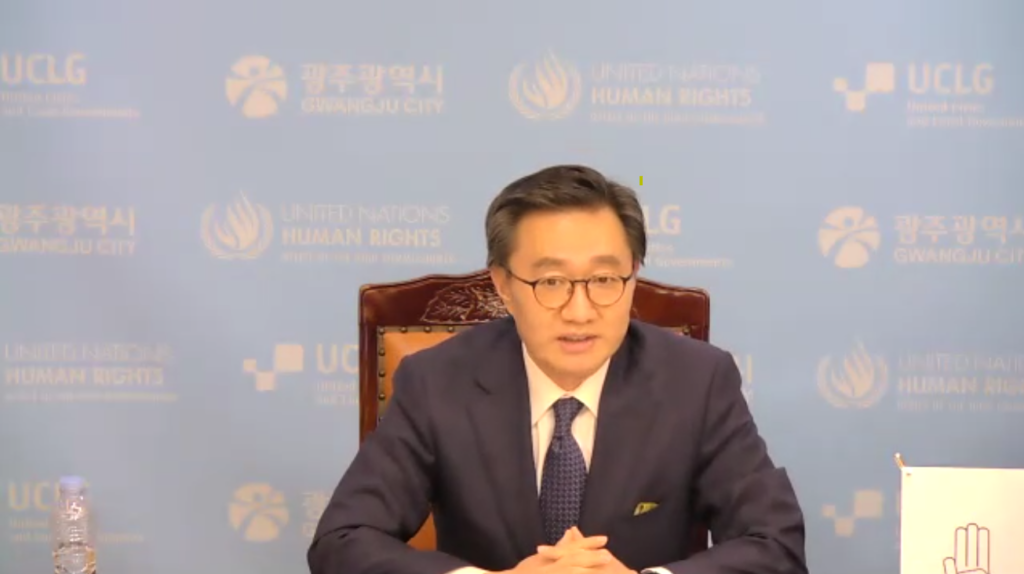
WHRCF: Recently, the United Nations Conference on Trade and Development (UNCTAD) upgraded Korea’s status from a developing country to a developed one. What do you think are the factors that caused this change? What are the cultural and economic implications for Korea’s future?
Ambassador Yoon: Until recently, Korea had been considered a developing country by the World Trade Organization. With the tenth largest economy in the world as well as a per capita income over 30,000 USD, it almost feels unfair that we enjoyed such a status, much to our benefit. In a way, this change took place because Korea’s progress outpaced everyone’s imagination. As an ambassador from Korea, I have frequently been asked the same question: What was your secret? My answer usually starts with our adoption of an export-driven strategy, help from the international community, including the United Nations, our alliance with the United States that created a stable environment for foreign investment in Korea, and our traditional emphasis on education. The list goes on and on.
But most importantly, the Korean people worked incredibly hard. There is no secret nor easy way. Making sacrifices for future generations with your hardwork is what makes the biggest difference. I also think Korean women’s extraordinary resilience and their contribution to development was a key factor.
As a diplomat who has worked outside of Korea, I feel the impact of our status change, and not only from economic growth. Our full-fledged and vibrant democracy also garners the respect of other countries. In addition to our work ethic and strategic planning, we should remember to appreciate the helping hands of our friends around the world. Now, it is our turn to reach out. Not only with economic aid but also with cultural understanding of other peoples by working with them on the ground. That kind of service will earn us more respect globally, and it will set a good example for the next generation.
Photographs courtesy of Yoon Yeocheol.
The 11th World Human Rights Cities Forum
Theme: Human Rights in Times of Challenge: A New Social Contract
Dates: October 7–10, 2021
Location: Kimdaejung Convention Center and Online
Website: www.whrcf.org




